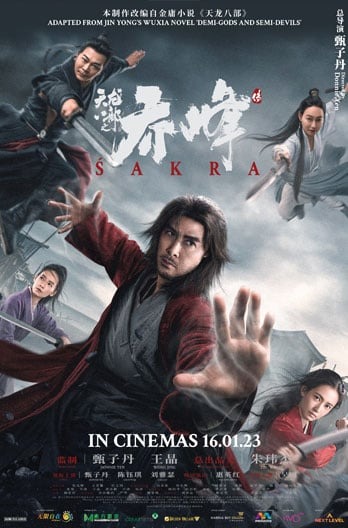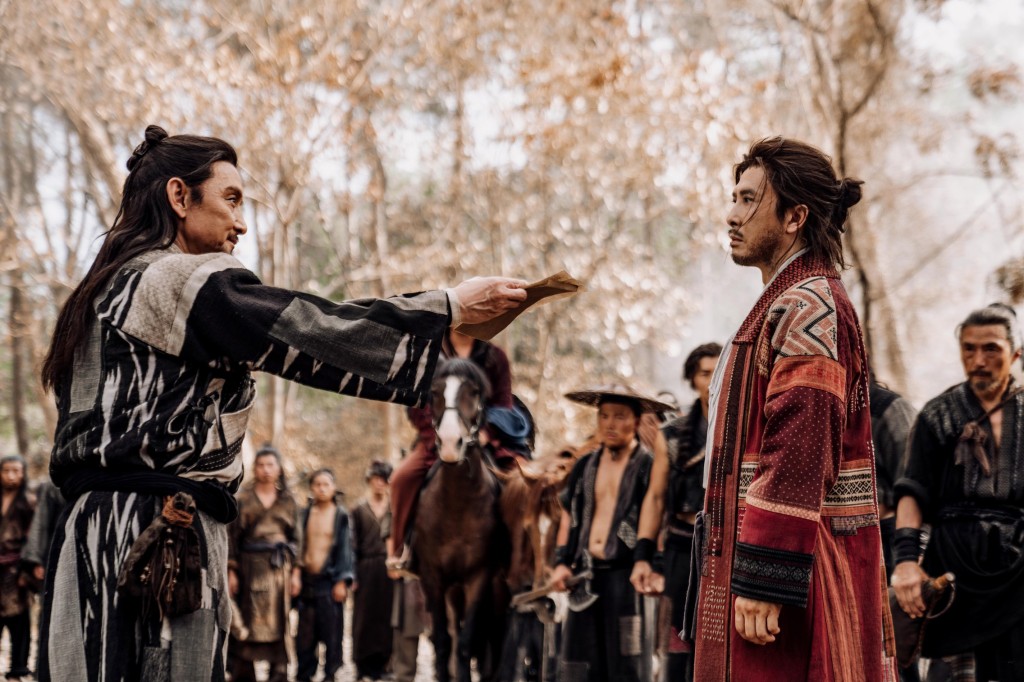Director: Damien Chazelle
Cast : Brad Pitt, Margot Robbie, Diego Calva, Jean Smart, Jovan Adepo, Li Jun Li, Tobey Maguire, Max Minghella, Lukas Haas, Samara Weaving, Spike Jonze, Katherine Waterston, Eric Roberts, Olivia Hamilton, P.J. Byrne
Genre: Comedy/Drama/History
Run Time : 189 min
Opens : 19 January 2022
Rating : R21
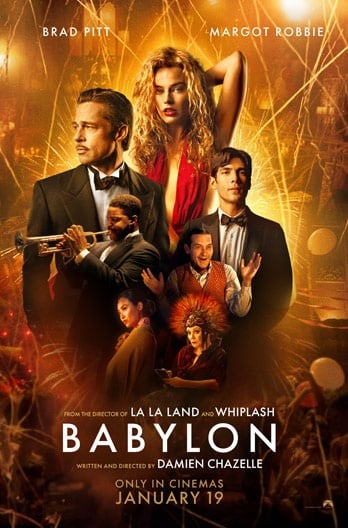
In 2017, Damien Chazelle became the youngest person to win the Best Director Oscar at 32, for La La Land. If that film was a love letter to Hollywood, then Babylon is an epic drunk text to an ex, delving into Tinseltown’s past, partially set during the transition between silent movies and talkies.
It is 1927. Nellie LaRoy (Margot Robbie) is an aspiring actress from New Jersey with an outsized personality and undeniable charisma. Manuel “Manny” Torres (Diego Calva) is a Mexican-American assistant who dreams of actually working in the movies. Both characters cross paths at a lavish party. Also present are dashing silent film star Jack Conrad (Brad Pitt), jazz trumpeter Sidney Palmer (Jovan Adepo) and Chinese-American cabaret singer Lady Fay Zhu (Li Jun Li). The movie tracks their various paths over the following years as Hollywood is plunged into a turbulent, exciting period of change. The advent of synced sound causes silent movies to be phased out, with some silent movie stars struggling to make the transition. Meanwhile, the Hays Code is introduced, leading to strict censorship. Nellie becomes an overnight sensation and Manny eventually works his way through the studio ranks, and the film tracks them over the next several years as these former outsiders with a dream find themselves in the eye of the storm.

Babylon is an ambitious, sprawling effort, with a staggering 189-minute runtime to show for it. Chazelle has clearly thrown himself into making this movie, which is a plainly massive undertaking. There are times when Babylon handily sweeps the audience up along for the ride, and key to its hypnotic thrall is the way the movie works with the music. Oft-collaborator Justin Hurwitz creates a rousing, kinetic, jazz-laced score, which works hand-in-hand with the heady imagery. Babylon is long, but there is no shortage of outrageous events unfolding onscreen to keep audiences’ interest, with just enough to the main characters’ arcs to inspire a certain investment.

In the opening scene, Manny and other characters attempt to haul an elephant up a hill, with disastrous results. This seems to be an omen for the following three hours. While there is much about Babylon that is engaging, it is also bloated, and Chazelle’s Herculean effort (mainly the fifth labour of Hercules) in dragging this beast forward is often noticeable. Much has been made of Babylon’s depiction of Hollywood debauchery. The big party scene includes copious amounts of sex, drugs and jazz, with the aforementioned elephant tossed in for good measure. After a while, it feels like the gross-out shock humour, including all manner of bodily functions, is just there for the sake of it and it grows tiresome.

Babylon wants to be subversive and to shatter the idea of a time before the movie industry was wanton and depraved, but it winds up being a lot less insightful about its historical setting than it could have been. There’s a lot of movie here, but one can’t help but feel like not a lot is being said. The first two hours are more or less a knockabout farce, then the third hour careens hard into high drama and tragedy. It’s not like things aren’t set up, but it still is a jarring shift for a movie that is being billed as a comedy. Babylon owes a great deal to Singin’ in the Rain, but at least it isn’t trying to hide that. Comparisons have also been made to the porn industry drama Boogie Nights. By the time Babylon ends, it’s as if Chazelle is tearfully proclaiming “I just love movies!” but its ostensible awe at the magic of cinema is at odds with how gleeful it is about animal excrement and human vomit.
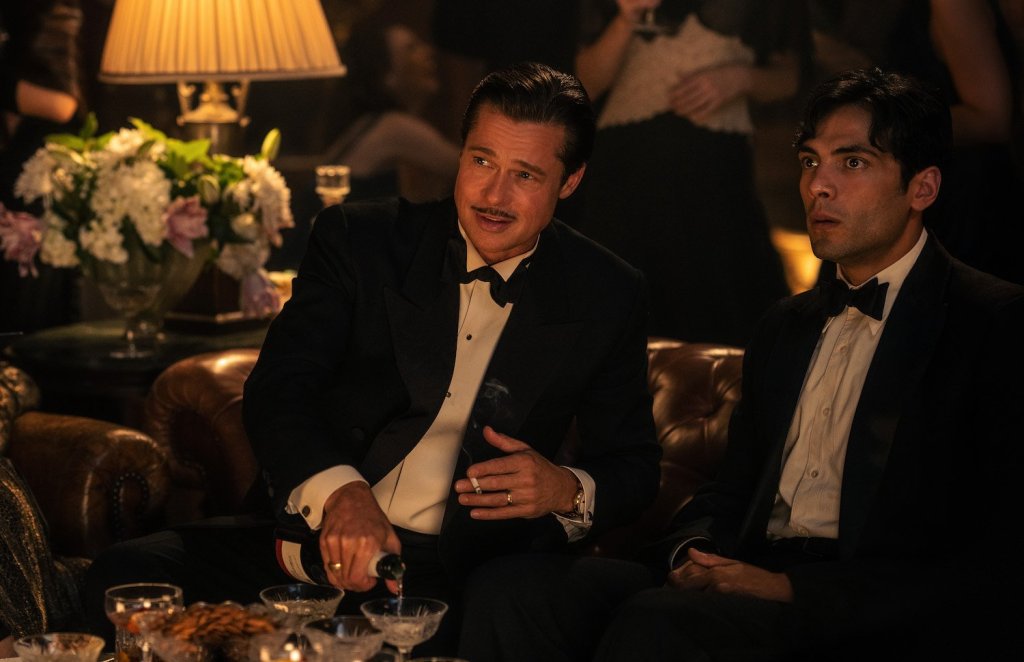
Babylon has an excellent cast, with both Pitt and Robbie playing to their strengths as performers and leaning into their public personas as movie stars. Pitt’s character is an amalgamation of silent screen leading men like Douglas Fairbanks, John Gilbert and Clark Gable. He is a charming hard-partier and serial marrier who struggles with watching his star fade. A scene that Pitt shares with a withering entertainment journalist played by Jean Smart is especially affecting and well-acted. There is a goofiness that Pitt brings to the proceedings, but we also empathise with Jack as we glimpse the darkness beneath the glitzy surface.
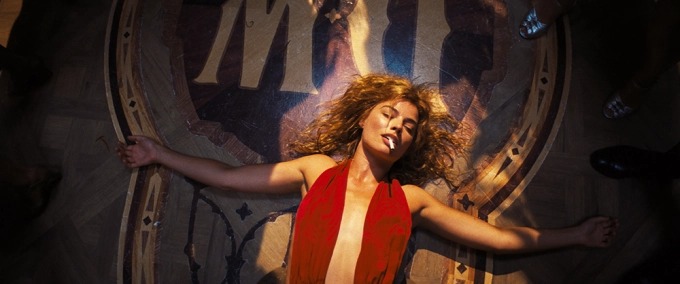
Robbie’s performance as the ingenue, inspired by such actresses as Mary Pickford, Clara Bow and Joan Crawford, is fearless and mesmerising. Nellie is as talented and magnetic as she is self-destructive, and while neither Nellie’s nor Jack’s arcs are original ones, not least in movies about Hollywood, both Pitt and Robbie are excellent.

Mexican actor Diego Calva, who had a role in Narcos: Mexico, is arguably the movie’s breakout performer. While Manny is not the most interesting of all the characters in Babylon, Calva does imbue him with an earnestness and we get invested in the characters’ journey, especially when he rises to the position to make some consequential, possibly devastating decisions.

Jovan Adepo’s Sidney Palmer doesn’t get a whole lot of attention but is quietly one of the more compelling characters in Babylon. Unfortunately, the movie seems ill-equipped to comment on the role of Black entertainers in early Hollywood. It makes an attempt at it, but seems too preoccupied with extravagant displays of bad behaviour to delve into the issue.
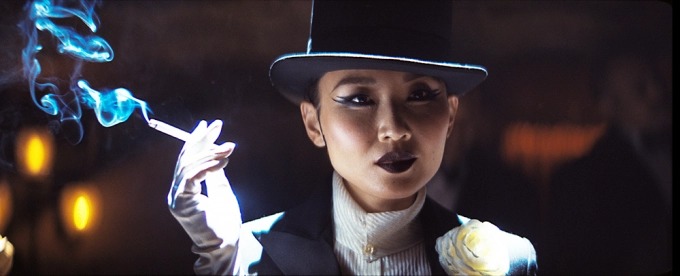
Li Jun Li’s Lady Fay Zhu, a thinly-veiled allusion to Anna May Wong, is a badass but ultimately still plays into fetishistic, Orientalist portrayals of Asian women in Hollywood. The inclusion of minority characters could have served as an opportunity to take a close look at what it was like for non-white people in early Hollywood, but Babylon misses that opportunity.
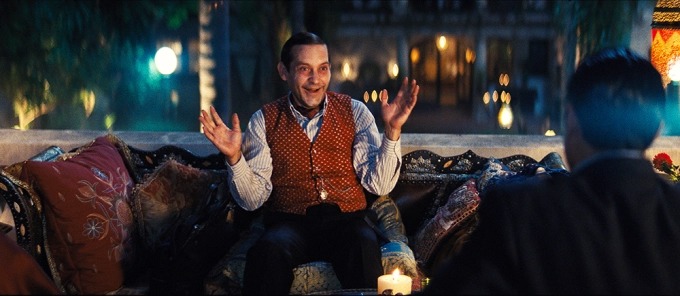
There are plenty of moments for the supporting cast to shine, with Eric Roberts getting a few memorable scenes as Nellie’s father/manager. Tobey Maguire pops up late in the movie as an impish, devilish crime boss.
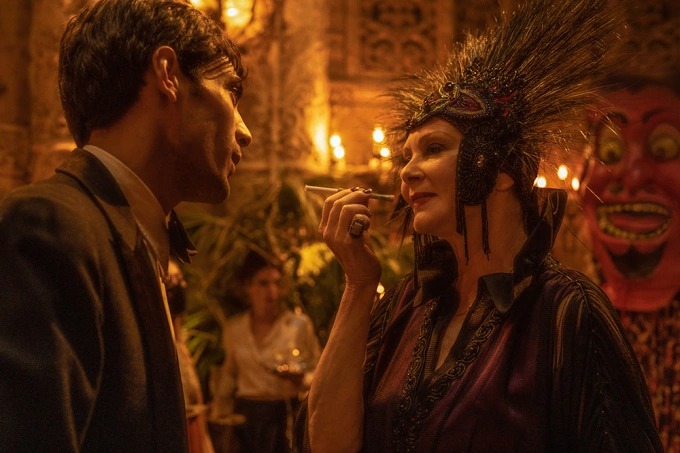
Summary: Babylon is a sprawling and ambitious ode to Old Hollywood, pulling back the curtain on its anything goes chaos. Unfortunately, the movie seems altogether too preoccupied with being “extreme” and pushing boundaries in its depiction of sordid depravity. The gross-out shock value moments threaten to drown out some legitimately arresting performances, with the casting of Brad Pitt and Margot Robbie being especially canny. There are impactful, resonant moments here, but they’re buried in the cacophony. Writer-director Damien Chazelle is in full ‘cheeky film student’ mode, telling a historical tale laced with all the shenanigans and outlandish behaviour to earn it an R21 rating. Babylon is an overstuffed, 189-minute-long behemoth, but it is also never boring. With its mixed-to-positive critical reception, it remains to be seen if Babylon will live on as a bit of a curio, or eventually become something of a cult classic.
RATING: 3 out of 5 Stars
Jedd Jong
